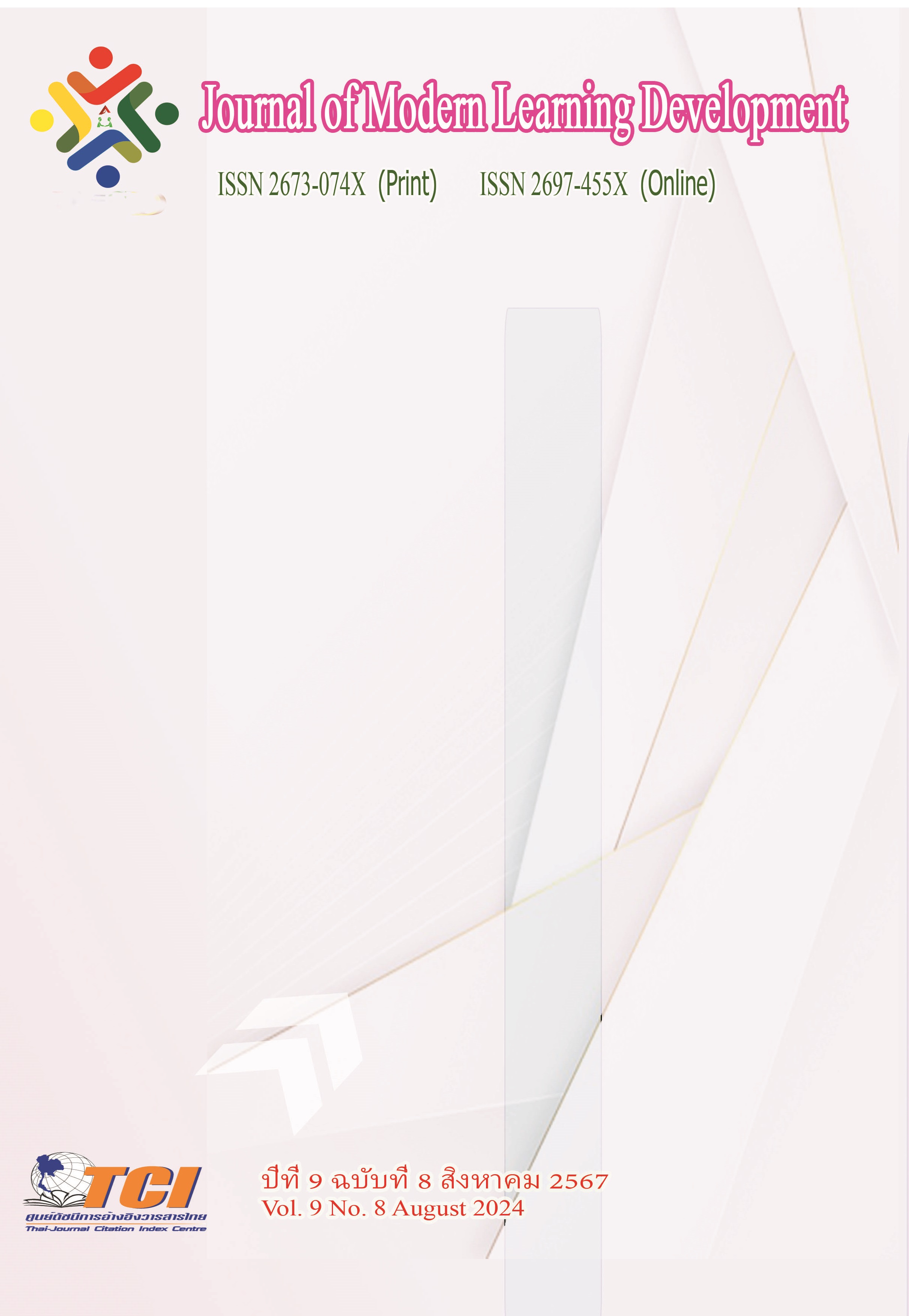The Model Of Buddhist Oriented Schools’ Administration to be the Leading Buddhist Way Based on the 4 Iddhipada Dhammas Under thePrimary Educational Service Area of Nong Khai Provinc
Main Article Content
Abstract
The objectives of this research are: 1) to study the needs and necessities of school administration towards becoming a leading Buddhist way of life; Under the jurisdiction of the Primary Educational Service Area Office Nong Khai Province 2) to create a Buddhist school management model To become a leading Buddhist way According to the 4 principles of influence under the Office of the Primary Educational Service Area Nong Khai Province and 3) to evaluate the management model of Buddhist schools. To become a leading Buddhist way According to the 4 principles of influence under the Office of the Primary Educational Service Area Nong Khai Province It is a combined method research. The research tools are interviews and statistics used in data analysis include mean and standard deviation.
The research results found that
1. There are 5 aspects necessary for school administration to become a leading Buddhist way of life: physical aspect, daily Buddhist activities. Teaching and learning Behavior of teachers, students, administrators and promotion of Buddhist practices
2. Buddhist school management model to become a leading Buddhist way According to the Iddhipāda 4 principles, there are 4 elements: 1) name, format, 2) principles, concepts, 3) objectives, 4) content, and 5) measurement and evaluation.
3. Results of suitability assessment possibility and the usefulness of the Buddhist school management model to become a leading Buddhist way According to the principle of Iddhipada, 4 is at the highest level.
Article Details
References
นรเศรษฐ์ เจริญกิจโณทัย, พระมหาสุภวิชญ์ ปภสฺสโร และ พระครูปลัดสมชัย นิสฺสโภ. (2566). การบริหารโรงเรียนวิถีพุทธชั้นนำตามหลักอิทธิบาท 4 ของผู้บริหารสถานศึกษาสังกัดสำนักงานเขตพื้นที่การศึกษาเลย หนองบัวลำภู. วารสารมณีเชษฐาราม วัดจอมมณี. 4 (6), 164-178.
พระมหาบัญญัติ สุจิตฺโต และคณะ. (2563). รูปแบบการบริหารงานบุคคลตามหลักอิทธิบาท 4 สำหรับผู้บริหารโรงเรียนสังกัดสำนักงานเขตพื้นที่การศึกษาประถมศึกษา. วารสารครุศาสตร์ปริทรรศน์. 7 (3), 259
พระครูสังฆรักษ์สิงห์ชัย ฐิตธมฺโม และ พระครูศรีสุธรรมนิวิฐ. (2565). การบริหารโรงเรียนวิถีพุทธ. วารสารวิชาการ. 5 (4), 285-294.
พระมหาวิชาญ สุวิชาโน (บัวบาน). (2563). การพัฒนารูปแบบการดำเนินงานโรงเรียนวิถีพุทธ. ดุษฏีนิพนธ์หลักสูตรปริญญาพุทธศาสตรดุษฎีบัณฑิต สาขาวิชาพุทธบริหารการศึกษา. บัณฑิตวิทยาลัย:มหาวิทยาลัยมหาจุฬาลงกรณราชวิทยาลัย.
พระมหาวิชาญ สุวิชาโน (บัวบาน) และคณะ. (2562). คู่มือดำเนินงานโรงเรียนวิถีพุทธ. สำนักงานพระสอนศีลธรรม ส่วนงานวางแผนและพัฒนาการอบรมสถาบันวิปัสสนาธุระและหลักสูตรพุทธบริหารการศึกษา คณะครุศาสตร์. มหาวิทยาลัยจุฬาลงกรณราชวิทยาลัย,
พระโฆษิต โฆสิตธมฺโม. (2565). การประยุกต์ใช้หลักอิทธิบาท 4 เพื่อการบริหารองค์กรสู่ความสำเร็จ. วารสารธรรมวัตร. 3 (1), 39-47.
ภัทรา ไวทยกุล. (2558). การประเมินเชิงระบบโครงการโรงเรียนวิถีพุทธ กระทรวงศึกษาธิการ. วิทยานิพนธ์หลักสูตรปริญญาดุษฎีบัณฑิต สาขาวิชาการบริหารการศึกษา. วิทยาลัยบัณฑิตศึกษาด้านการจัดการ มหาวิทยาลัยศรีปทุม.
มัณฑนา ปรียวนิตย์. (2553). การบริหารงานโรงเรียนวิถีพุทธ ตามหลักอิทธิบาท 4 ของโรงเรียนสังกัดสำนักงานเขตพื้นที่การศึกษาประถมศึกษานนทบุรี เขต 1. วิทยานิพนธ์พุทธศาสตรมหาบัณฑิต. มหาวิทยาลัยมหาจุฬาลงกรณราชวิทยาลัย.
ศรีสุดา รัตนะ, ปัทมาพร ชเลิศเพ็ชร์ และ เรวดี กระโหมวงศ์. (2556). สภาพปัญหาการดำเนินงานโรงเรียนวิถีพุทธสังกัดสำนักงานเขตพื้นที่การศึกษาประถมศึกษาตรัง เขต 2. บทความวิจัย เสนอในการประชุมหาดใหญ่วิชาการ ครั้งที่ 4 เรื่อง การวิจัยเพื่อพัฒนาสังคมไทย, 10 พฤษภาคม 2556


